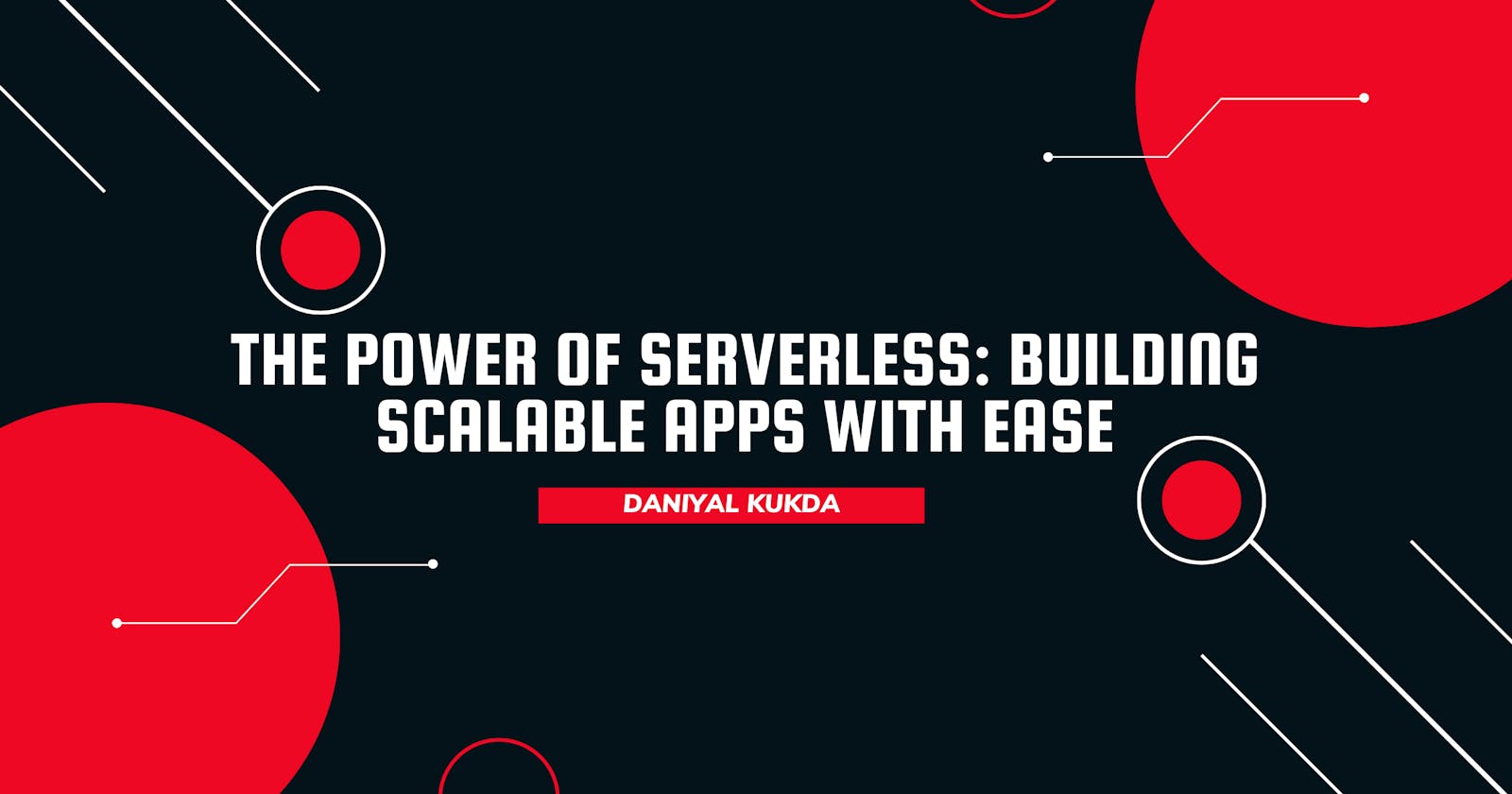Hello & Assalam o Alaikum Everyone! 👋
Are you tired of the hassle of managing and provisioning servers? If so, you're in the right place. In this article, we'll explore the concept of Serverless and how it addresses one of the most significant challenges in the world of technology today. Join us as we dive into the world of Serverless computing and learn how it can transform how you approach application development.
Let's jump in 🚀
The demand for scalable and cost-effective software solutions has never been greater. With the ever-increasing number of users and data that need to be processed, companies are looking for ways to build applications that can quickly scale to meet their needs. Enter serverless computing, a revolutionary approach to building scalable apps that can handle high levels of traffic and data with ease.
What is serverless computing, and how can it help build scalable apps?
In traditional app development, developers had to provision, manage, and maintain servers to ensure that their apps would run smoothly. This could be an expensive and time-consuming process, especially as the app scaled up to handle more users and data. Serverless computing eliminates the need for developers to manage servers by handling the infrastructure for them. Instead of focusing on managing servers, developers can focus on building and improving their app's functionality.
Serverless computing works by executing code in response to events, such as a user uploading a file or making a request to an API. The code is hosted and executed by a cloud provider, and the developer is only charged for the resources used during the execution of the code. This pay-per-use model makes serverless computing a cost-effective solution for building scalable apps.
Another benefit of serverless computing is its scalability. With traditional app development, developers had to anticipate the maximum number of users their app could handle and provision enough servers to handle that load. With serverless computing, the cloud provider automatically scales the infrastructure up or down in response to demand. This means that the app can handle sudden spikes in traffic without any additional work required by the developer.
Serverless computing can also help increase the reliability of an app. With traditional app development, if a server fails, the app can go down, and users may not be able to access it. With serverless computing, the cloud provider automatically manages the infrastructure, ensuring that the app remains available even if a server fails.
Overall, serverless computing is a powerful tool that can help developers build scalable, reliable, and cost-effective applications. With serverless computing, developers can focus on building great apps instead of managing infrastructure, making it an ideal solution for small and large businesses alike.
If you're interested in learning more about serverless computing, there are plenty of resources available online. Many cloud providers, such as AWS and Google Cloud, offer serverless computing services, and there are also many online communities and forums where you can connect with other developers and learn from their experiences.
In conclusion, the power of serverless computing is undeniable. With its ability to handle high levels of traffic and data, increase reliability, and reduce costs, serverless computing is changing the game for app development. If you're looking to build scalable apps with ease, serverless computing is the way to go.
